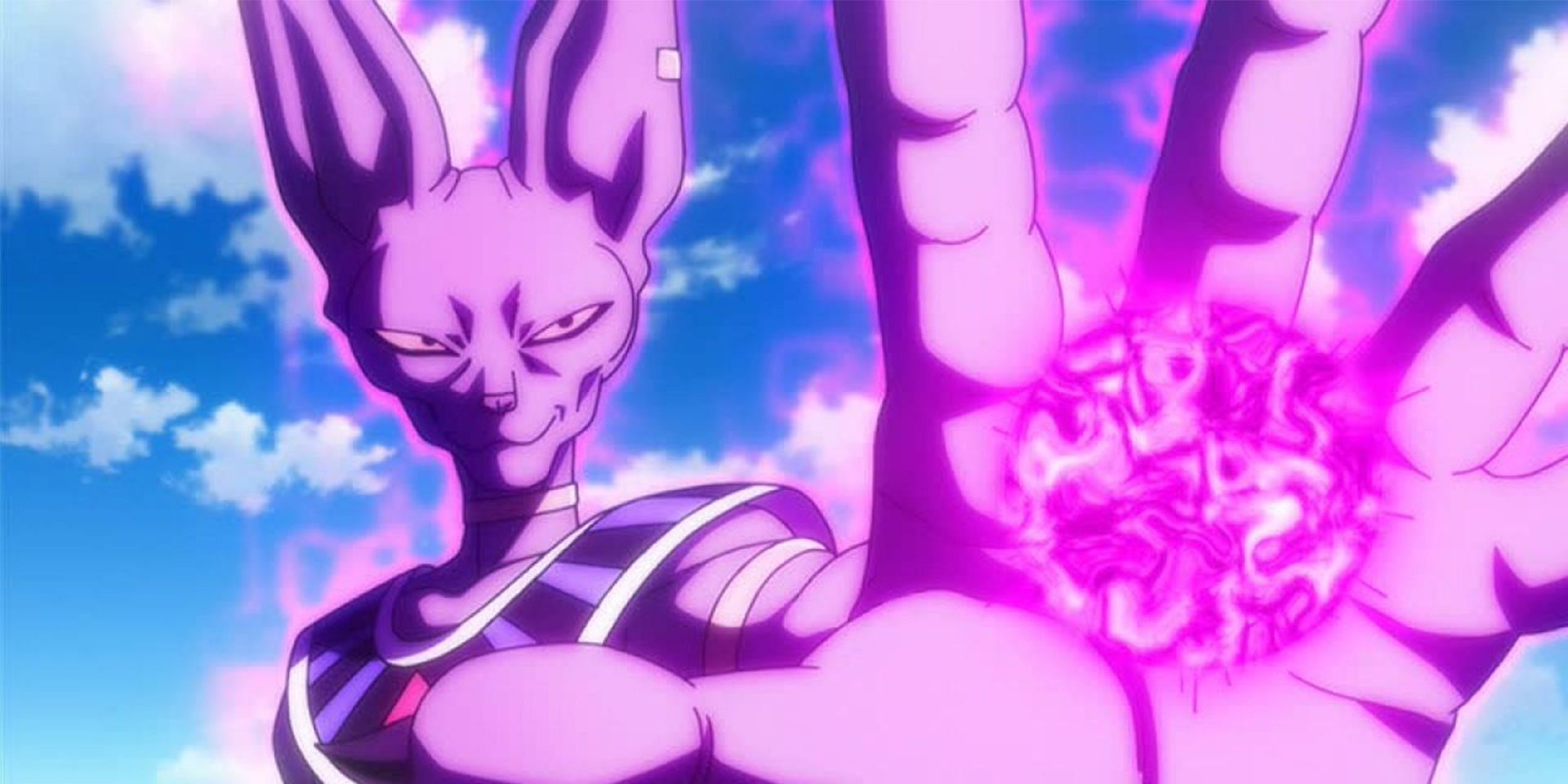
Initially, Beerus stood out as one of the most amusing characters in the series. He was funny, captivating, profoundly wise, and surprisingly, despite being an antagonist, he wasn’t truly evil. Beerus was the first divine character in the franchise that truly embodied god-like qualities. With his arrival, the universe expanded to unprecedented dimensions.
In a significant shift for the Dragon Ball series, Beerus initially revolutionized it upon his introduction, yet he’s since transformed from a savior to a hindrance. The humor, charm, wisdom, and relevance that once defined him are now absent, leaving only his role as an immovable benchmark of power. Characters like Goku and Vegeta are constantly prevented from surpassing this benchmark, even when it seems illogical or nonsensical. Throughout Dragon Ball Super, Beerus remains unchanged and consistently weakens the threat posed by most arcs due to his immense strength that far exceeds any villain’s. The early concepts about a corrupted divine hierarchy have also been largely forgotten.
Beerus in Battle of Gods Is 1 of Akira Toriyama’s Greatest Creations
Beerus Expanded the World of Dragon Ball More Than Any Character Before Him

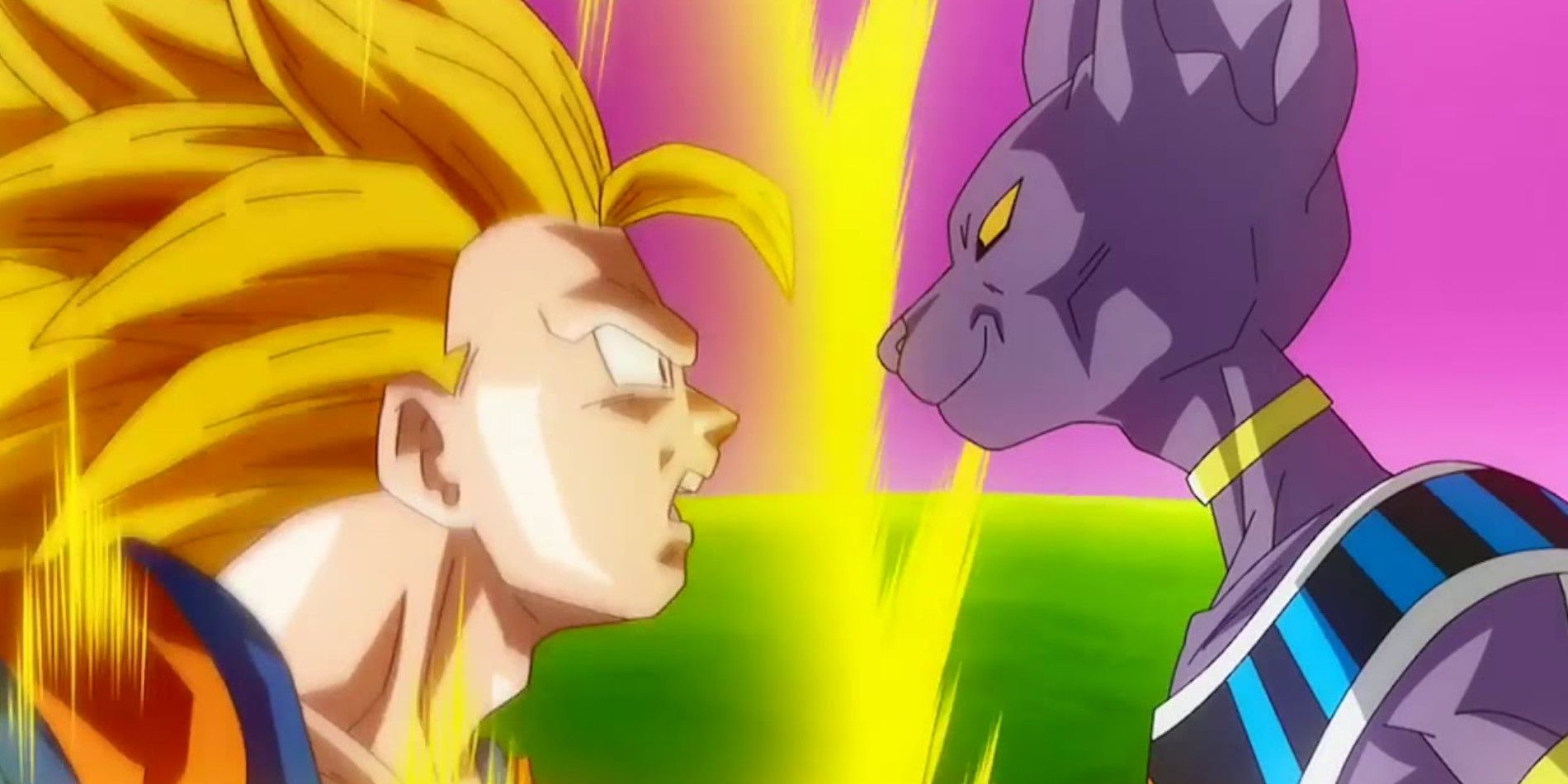
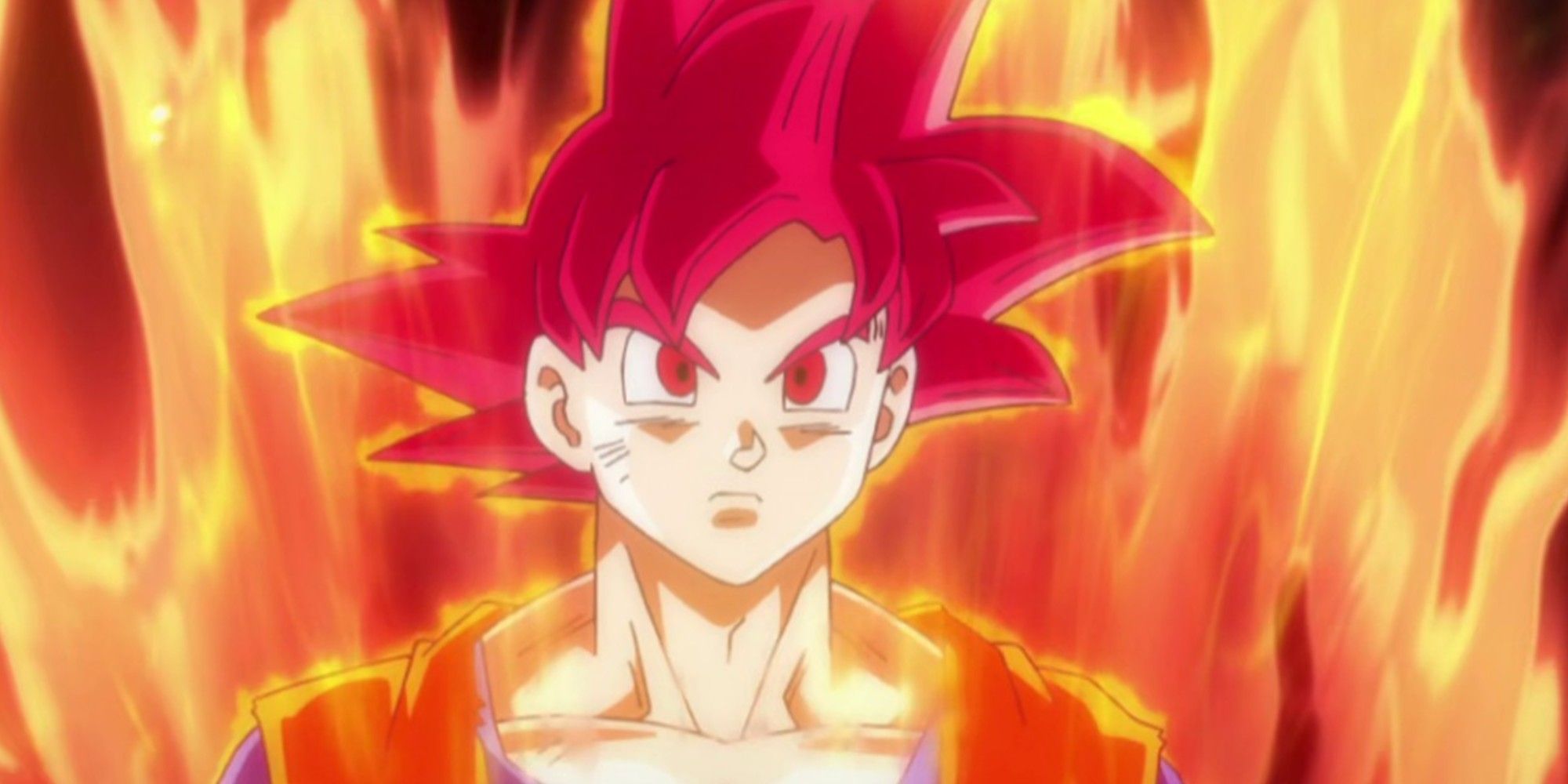
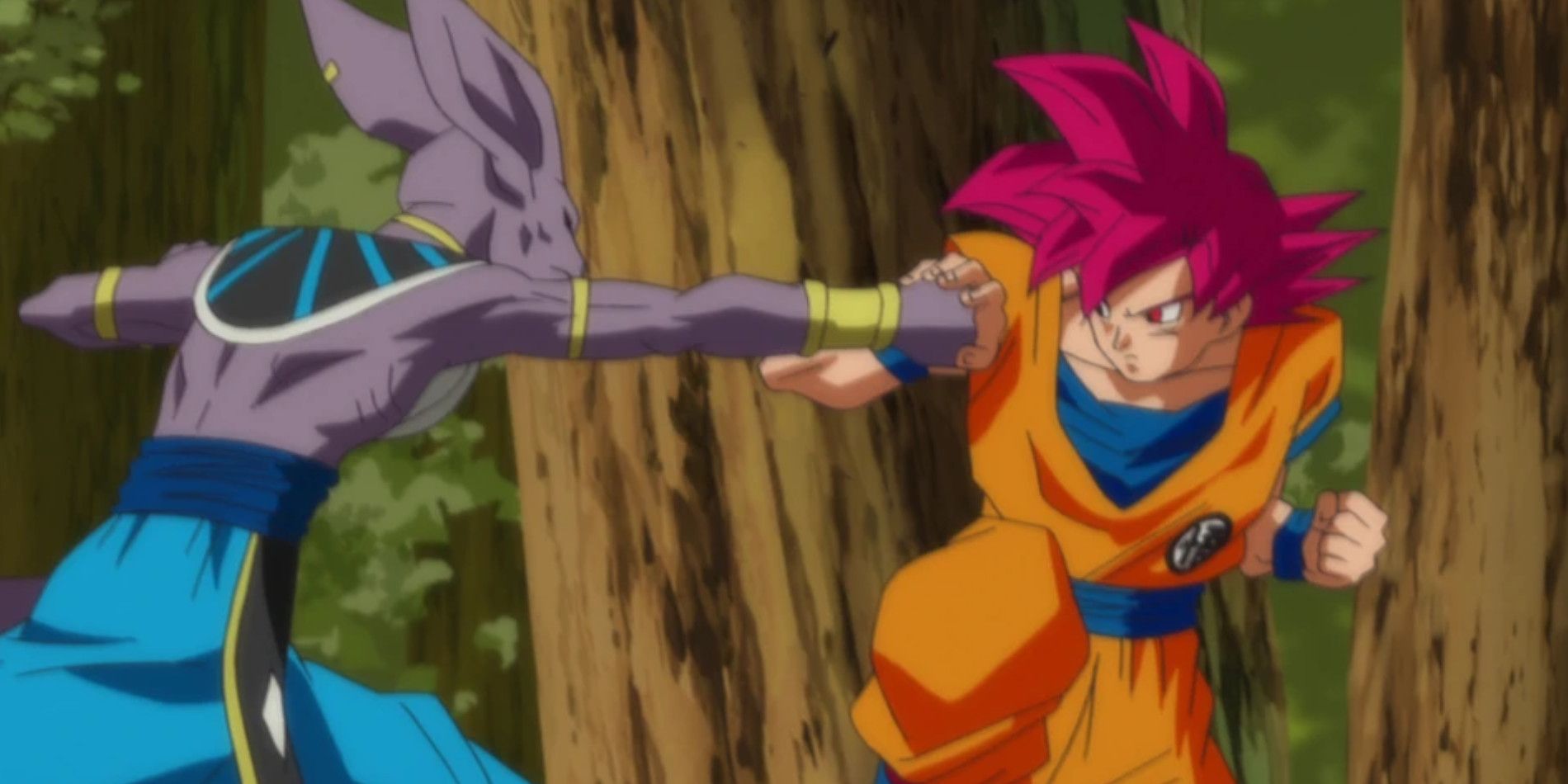
In terms of quality, Dragon Ball Z’s “Battle of Gods” stands out remarkably well. It was the first film in the series that truly felt like a movie, and it delivered an engaging tale on the essence of power. The movie is brimming with delightful character interactions, classic Toriyama humor, and its animation, music, and overall ambiance were top-notch for Dragon Ball at the time. Notably, “Battle of Gods” introduced the character Beerus.
In the universe of Dragon Ball, Beerus, the God of Destruction, initially emerged as a fascinating character with immense potential for future narratives. Similar to past deities in this series, Beerus defies typical expectations, appearing as a laid-back, party-loving cat-man who enjoys dancing with the Dragon Team. However, unlike previous gods in the franchise, Beerus can swiftly transform into a formidable threat, unhesitant about fulfilling his role as a destroyer. Just like other iconic Dragon Ball characters, Beerus is skillfully crafted to deliver comedy, drama, and action. His desire to awaken and battle the Super Saiyan God presents a unique conflict that surpasses what a traditional villain could offer.
Sharing the spotlight with Beerus, I was also captivated by his enigmatic attendant, Whis. Unlike the fiery and boisterous Beerus, Whis is a study in restraint, coming off as dignified, detached, and wise – that is, until the topic of food arises! It’s then that we get a glimpse of Whis’ playful side. He makes it abundantly clear that even if Goku manages to outdo Beerus one day, there are still greater heights for him to conquer.
The dynamic between Beerus and Whis is nothing short of hilarious, and their interactions with the Z-Fighters only add to the amusement. However, beyond providing comic relief, these two serve a far more significant purpose in the grand scheme of things.
Originally, Dragon Ball existed within a single universe, along with a few alternate realities. However, Beerus and Whis unveil that there are actually twelve universes, each containing an Angel and warriors as powerful as Gohan, Goku, and Vegeta. Previously thought to be the most powerful beings in existence after defeating Kid Buu, they turn out to be big fish in a small pond. Battle of Gods was not initially designed to start a new Dragon Ball saga, but this revelation left fans eager for more, curious about the multiverse. Given Beerus’ popularity, everyone hoped he would continue to play a significant role in these upcoming stories.
Beerus Has Become a Shadow of His Former Self in Dragon Ball Super
There’s No Longer Anything of Interest Regarding Universe 7’s God of Destruction
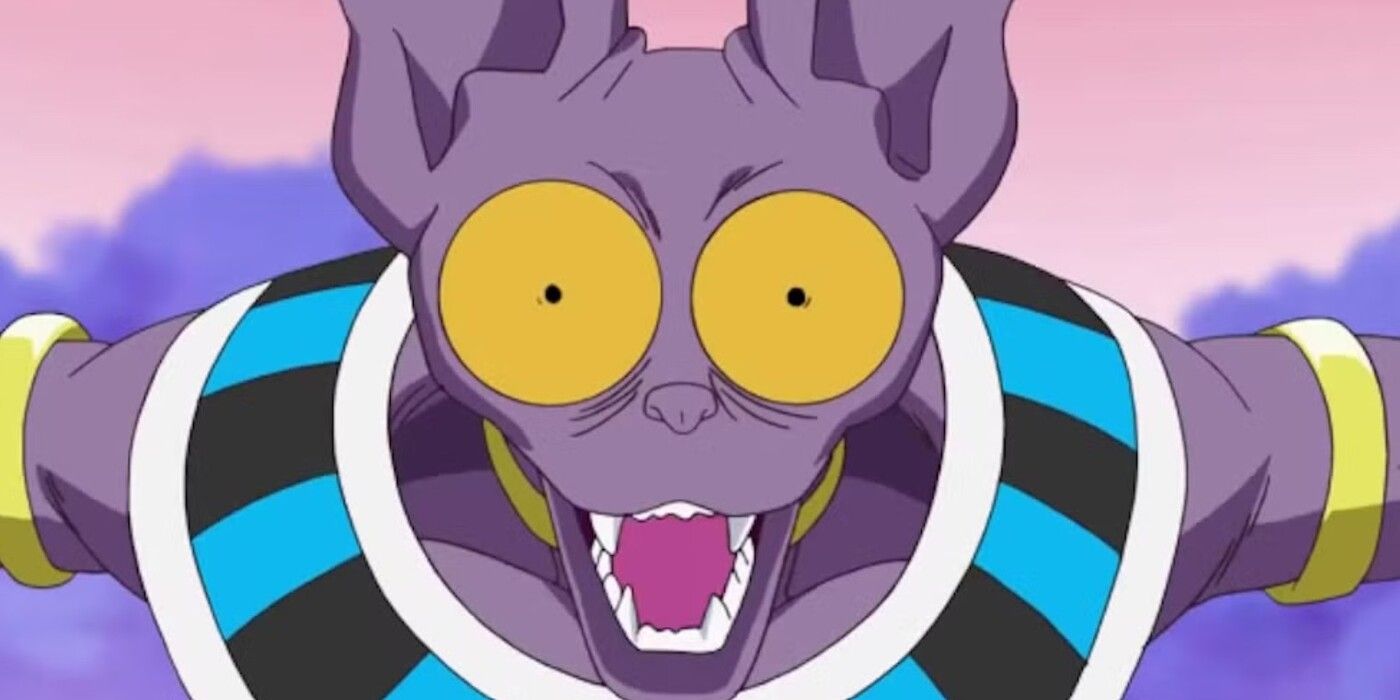
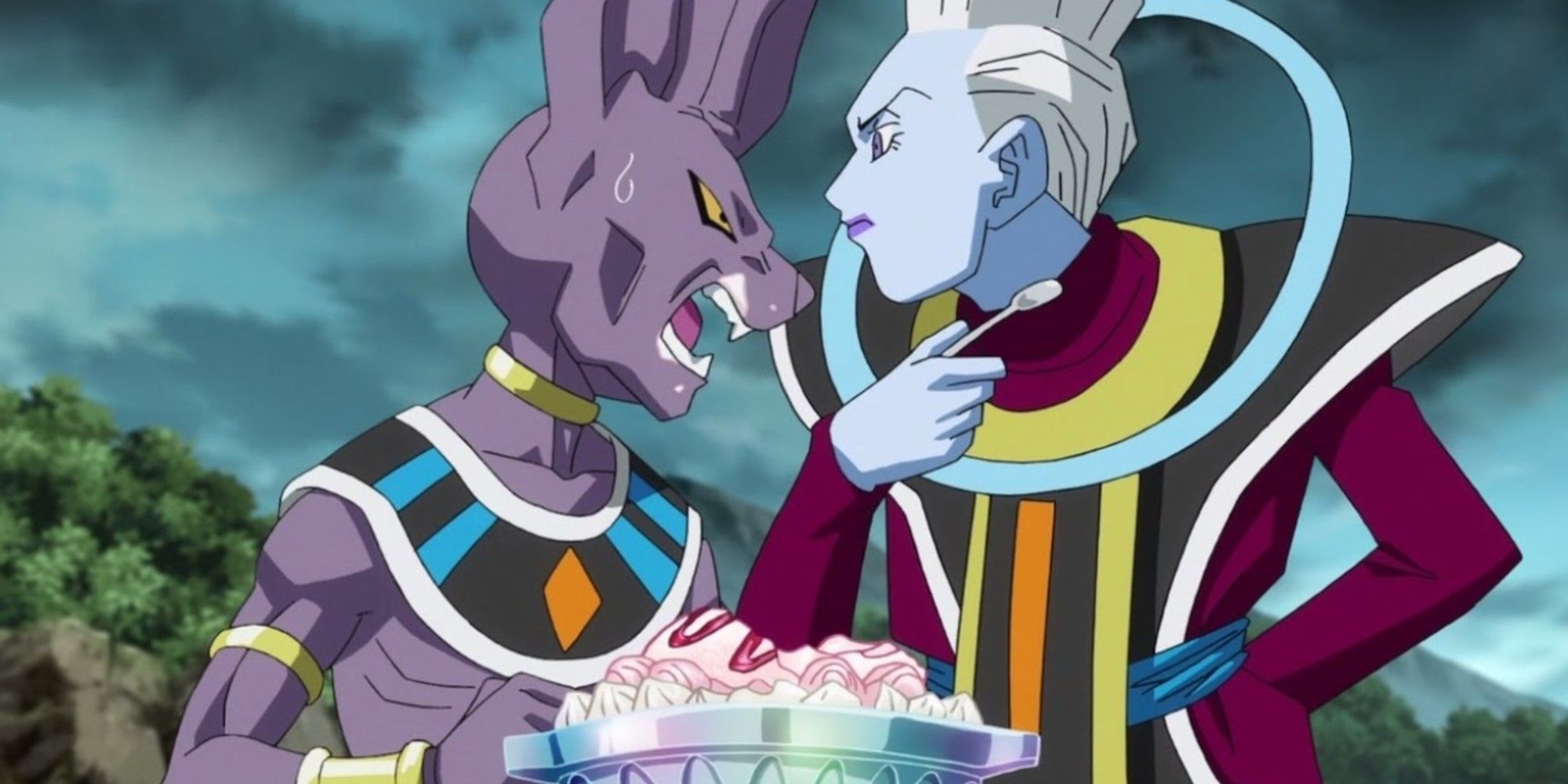
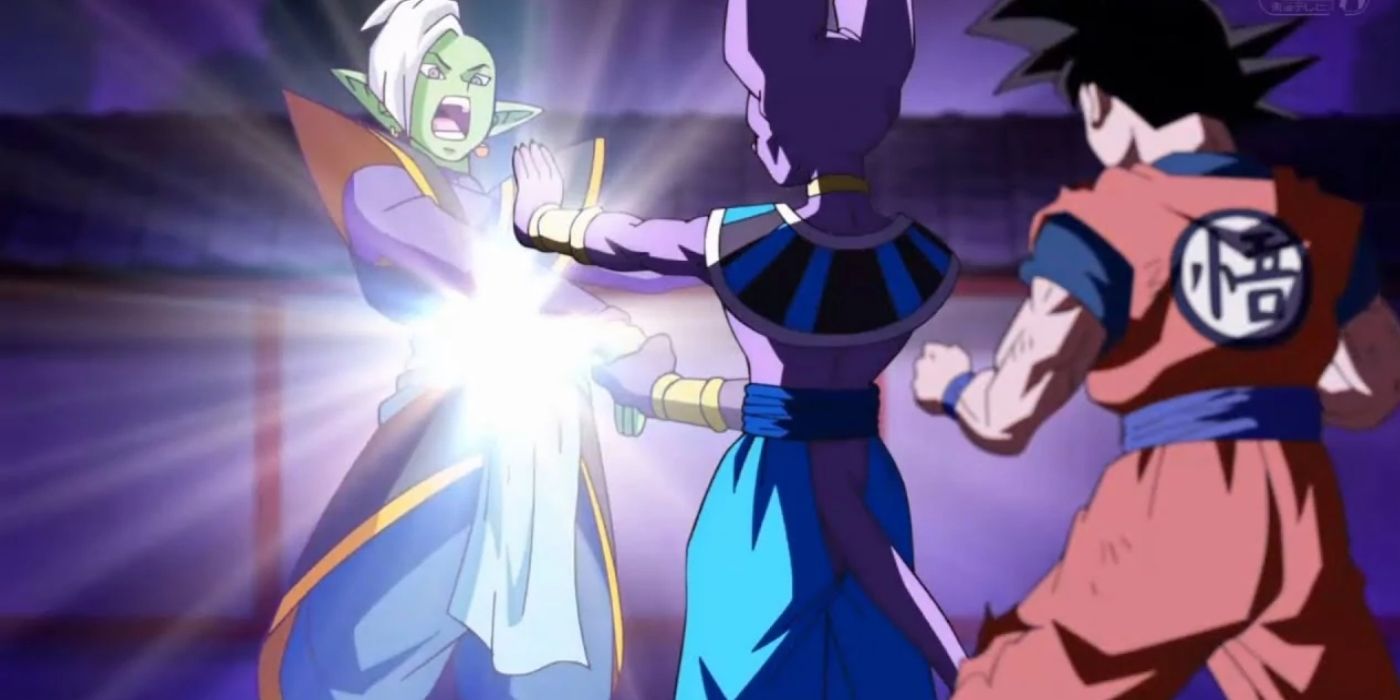
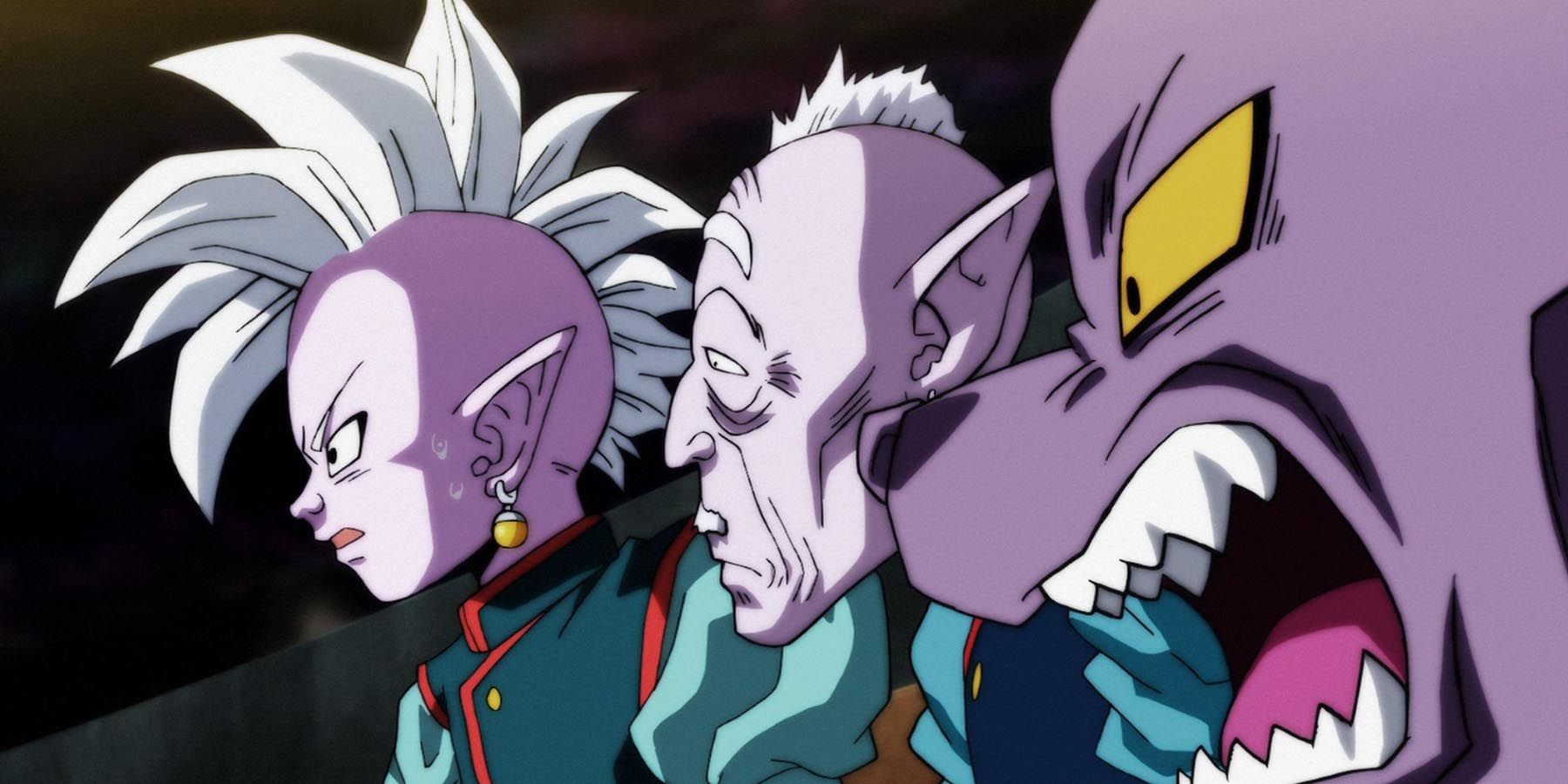
The decline of Beerus started right from his second appearance in “Dragon Ball Z: Resurrection ‘F'”. Compared to “Battle of Gods”, this film was lackluster in many aspects, and one of its major issues was the poor handling of Beerus. Although Beerus was still well-written at that point, the storyline no longer revolved around him, making it unclear as to why he was even present. This confusion was particularly noticeable during the battle between Goku and Frieza. Given that Beerus could easily eliminate Frieza if he believed the planet producing his favorite food was in danger, it seemed out of character for him not to act immediately.
In the initial part of “Dragon Ball Super,” which essentially retells the story of “Battle of Gods,” Beerus transformed into a significant threat. However, “DBS” made some alterations from the movie, and unfortunately, these changes were detrimental. The most critical mistake was characterizing Beerus as a more antagonistic figure, which brought about two problems: firstly, it diminished Beerus’s intrigue for future developments; secondly, it raised doubts as to why Goku, Vegeta, and the others were associating with him, given that he was essentially no different from any other world-threatening monster they had previously confronted.
In the subsequent episodes of Dragon Ball Super, Beerus experienced both peaks and troughs. His recurring jokes became less amusing during the Universe 6 Saga, and his tumultuous bond with Champa didn’t fully make up for this. Beerus was often depicted as a less dynamic character than he initially was, and he wasn’t given many opportunities to take action.
In the same vein, brief instances where Beerus took center stage were truly spectacular, and he played a pivotal role in the narratives of Universe 6, Future Trunks, and the Universe Survival Arcs. These stories primarily centered around the multiverse and cosmic hierarchy, creating an anticipation for an intriguing clash between mortals and deities. Instead of reprising his antagonist role as initially suggested by Dragon Ball Super, the manga has opted for a different approach with Beerus.
Beerus’ Presence Actively Makes Dragon Ball Super Worse
Beerus Is Nothing But a Constantly Moving Goal Post for Goku
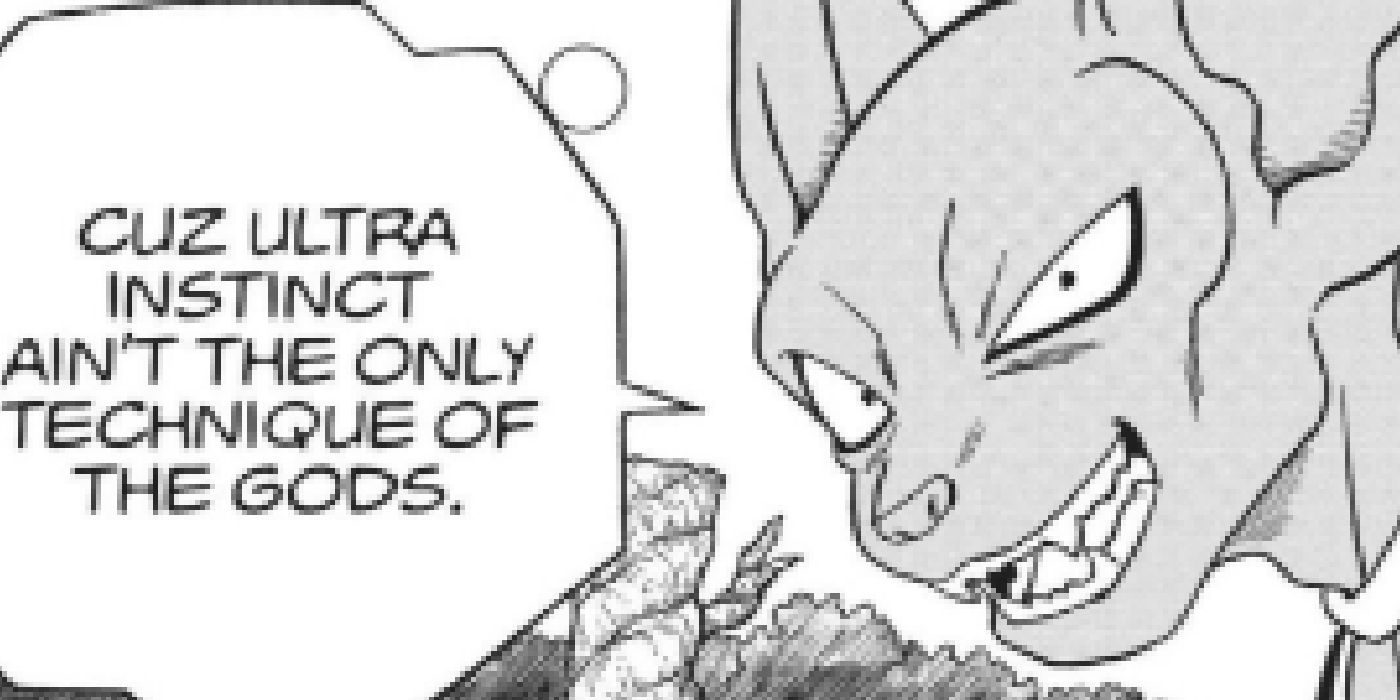
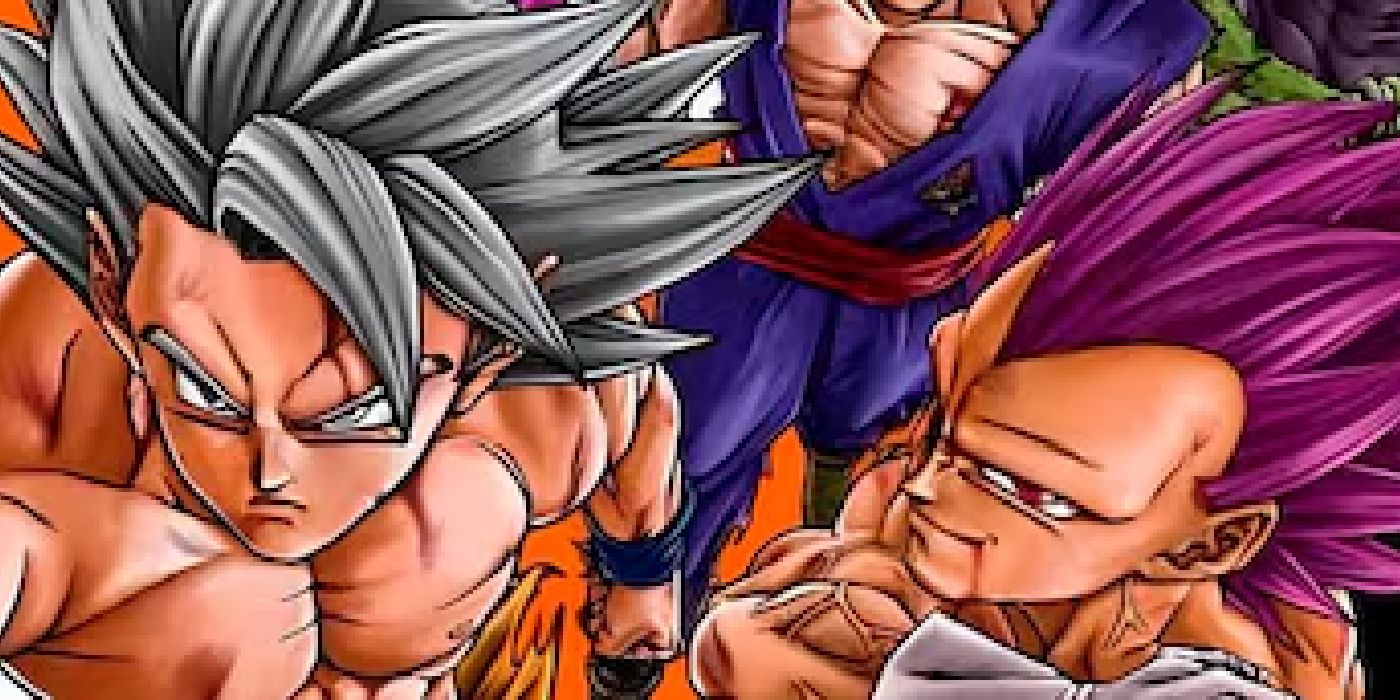
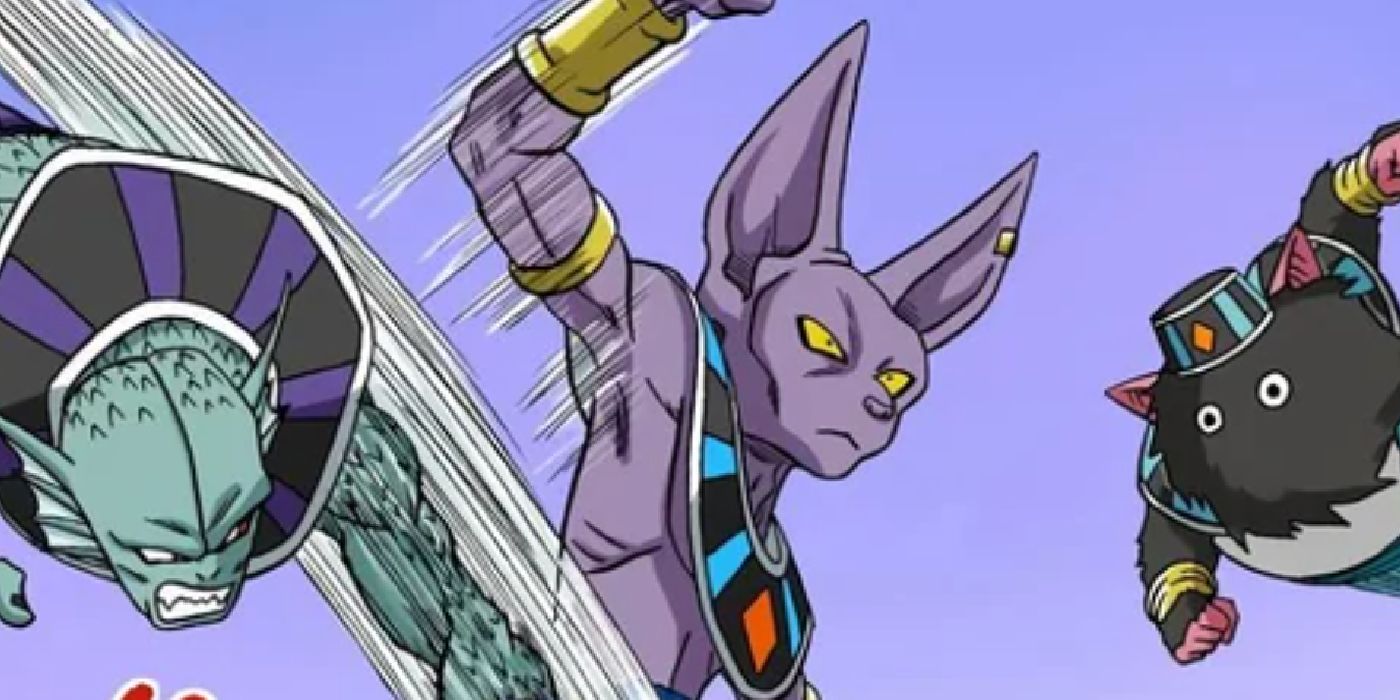
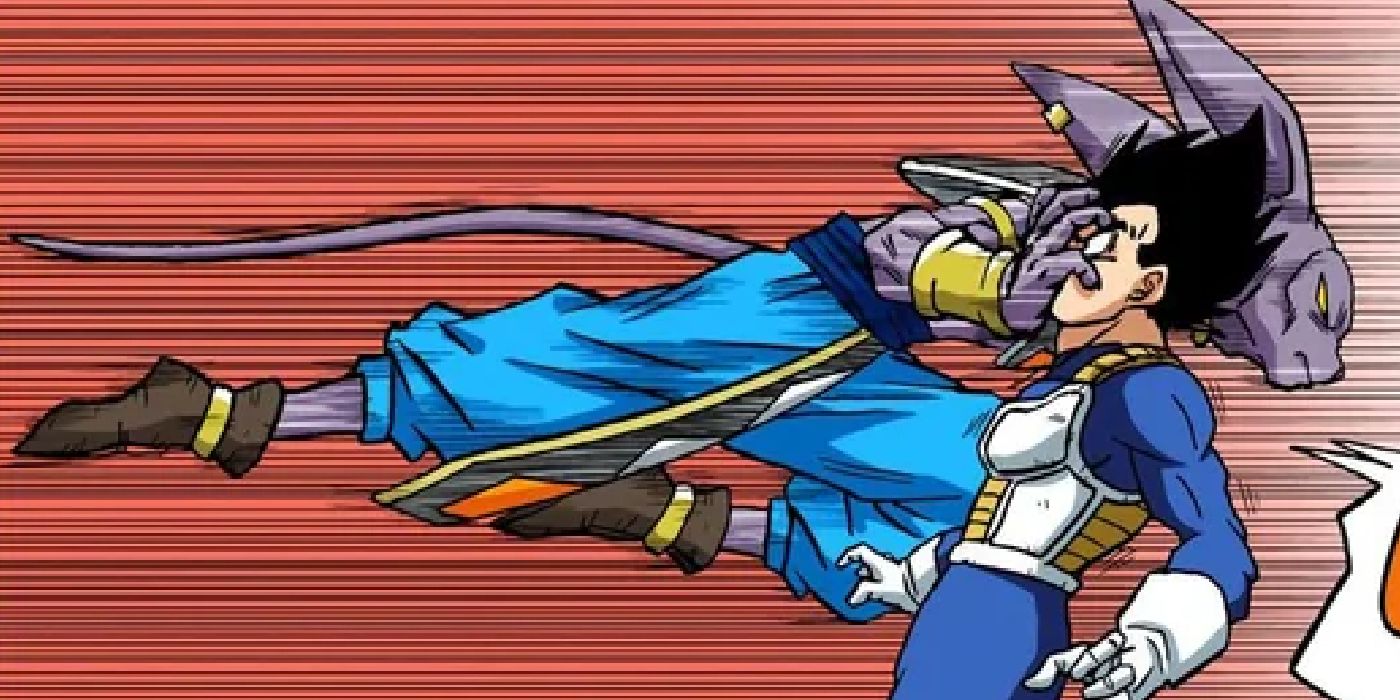
If Beerus had merely turned into a weak character following his brief time in the limelight, he would be indistinguishable from numerous other once-great characters in Dragon Ball. However, contrary to this expectation, Beerus has evolved into one of the most significant characters in Dragon Ball Super, featuring prominently in every arc. Despite seldom engaging in active actions and his character becoming less complex over time, he often appears for the sole purpose of reminding fans of his strength. Notably, when Beerus takes action personally, it’s usually to emphasize that he is still a formidable force.
In a new twist, Beerus has transformed from a character into an unattainable benchmark for Goku and Vegeta, acting as an obstacle they can never surpass. Regardless of how much stronger the Saiyans grow, Beerus continually appears to push them back, denying fans the joy of witnessing Goku outdo his past masters as in the original Dragon Ball and Dragon Ball Z series. This also keeps the tension from the Resurrection ‘F’ Saga alive. The conflicts in the Galactic Patrol Prisoner Saga, Granolah the Survivor Saga, and Dragon Ball Super: Broly, which are unrelated to the gods and themes previously established, could have been resolved more easily by Beerus. In fact, the manga has foreshadowed its upcoming arc by suggesting that even Black Frieza, strong enough to defeat Goku and Vegeta effortlessly, is still not as powerful as Beerus.
The issues with Beerus trace back to the Universe Survival Saga in both the anime and manga. In the anime, Beerus was initially depicted as one of the twelve Gods of Destruction, but it was suggested that Goku overtook him after attaining Perfected Ultra Instinct. However, in the manga, Beerus is shown to be the most powerful among the Gods of Destruction, which makes the universe seem smaller and still stronger than Goku. Later in the Granolah Arc, a new form called Ultra Ego was introduced to explain why Beerus doesn’t have Ultra Instinct and make sense of this power difference. It can be disheartening because it feels like no matter what Goku accomplishes, he’ll always get defeated by Beerus again.
Instead of focusing on Beerus’ strength becoming a recurring issue, the series chose to veer away from narratives about divine conflicts and brewing uprisings against gods, opting instead for unrelated stories lacking continuity. Consequently, problems related to Beerus have persisted and been repeated numerous times. It seems that every time it appears as though Beerus has been outclassed by another character, this turns out to be a false impression. This repetition has left Goku’s eventual victory over Beerus feeling unsatisfying. With very little else about Beerus that is appealing at this stage, his presence in the manga offers no positive contributions whatsoever.
In its current state, Dragon Ball Super may not be remembered as the revitalizer of the franchise for Beerus, but rather as a symbol of some of the series’ issues. To change this perception, Beerus needs to be reintroduced with significance, charm, and depth, returning him to his role as a character instead of an obstacle for the heroes. Whether it’s Goku, Vegeta, or Frieza, it appears that the only way this could occur is if someone eventually surpasses Beerus and confronts the gods.
Read More
- Clash Royale Best Boss Bandit Champion decks
- Vampire’s Fall 2 redeem codes and how to use them (June 2025)
- Mobile Legends January 2026 Leaks: Upcoming new skins, heroes, events and more
- World Eternal Online promo codes and how to use them (September 2025)
- How to find the Roaming Oak Tree in Heartopia
- Best Arena 9 Decks in Clast Royale
- Clash Royale Season 79 “Fire and Ice” January 2026 Update and Balance Changes
- Clash Royale Furnace Evolution best decks guide
- Clash Royale Witch Evolution best decks guide
- Best Hero Card Decks in Clash Royale
2025-05-05 07:12